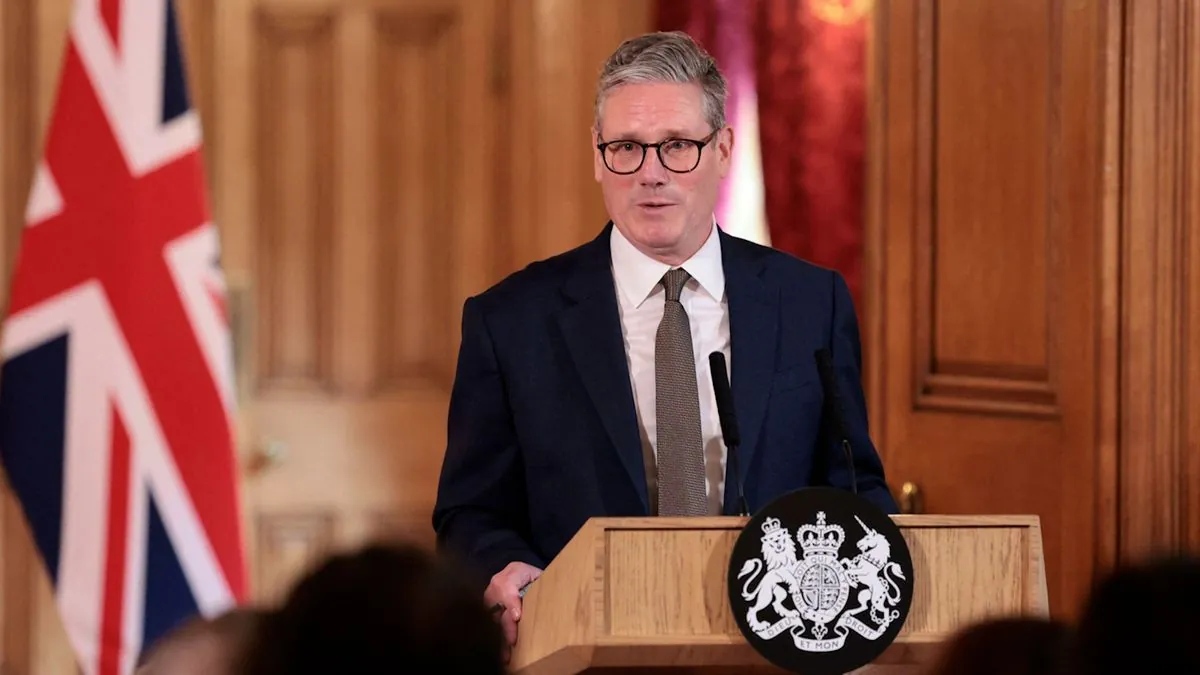Labour Donor's Number 10 Access Sparks Cronyism Debate in UK Government
Sir Keir Starmer defends granting Number 10 pass to Labour donor Lord Alli for transition work. Controversy arises over appointments of party supporters to Civil Service roles, prompting discussions on government integrity.

In a recent development that has sparked debate about political influence and government integrity, Sir Keir Starmer has addressed concerns regarding a Labour donor's access to Number 10 Downing Street. The Prime Minister confirmed that Lord Alli, who has contributed over £500,000 to the Labour Party in the past two decades, was granted a security pass for transition work.
Starmer stated, "Lord Alli was doing some transition work with us. He had a pass for a short-term time to do that work, the work finished, and he hasn't got a pass." This explanation comes amidst growing scrutiny over the appointment of Labour supporters to key Civil Service positions.
The controversy extends beyond Lord Alli's involvement. Recent appointments have raised eyebrows, including Ian Corfield, a Labour donor, to a senior Treasury role, and Emily Middleton, whose firm donated £67,000 to Labour, as a director general in the science department. These decisions have led to accusations of cronyism from opposition parties and some independent observers.

In response to these allegations, Sir Keir Starmer has firmly defended his government's actions. During a press conference in the Number 10 garden, he dismissed criticisms as "smears" from those who "dragged our country down in the first place." The Prime Minister emphasized his commitment to restoring honesty and integrity to government, stating, "I'm absolutely determined to restore honesty and integrity to government, because I think that is core to ensuring that people appreciate that politics can be a force for good."
Starmer also addressed the cancellation of appointments made by the previous government, including the selection of Gwyn Jenkins as the new national security adviser. This decision has fueled speculation about potential appointments of party loyalists to key positions.
"One of the reasons people have been disillusioned, disaffected, in recent years is because they can't see politics as a force for good, so that process and procedure and doing things properly matters to me."
Looking ahead, Sir Keir has reaffirmed his commitment to establishing an independent Ethics and Integrity Commission, as promised in the Labour manifesto. This watchdog would have the power to initiate inquiries into politicians, including the Prime Minister himself, although no specific timeline for its implementation has been provided.
As the debate continues, it's worth noting that the UK Civil Service, which employs around 450,000 people as of 2024, has a long-standing tradition of political neutrality. The current controversy highlights the delicate balance between political appointments and maintaining the impartiality of government institutions.
The ongoing discussions surrounding these appointments and access to Number 10 underscore the importance of transparency and accountability in modern British politics. As the government moves forward, all eyes will be on Sir Keir Starmer and his administration to see how they navigate these challenges while striving to uphold their promises of integrity and ethical governance.


































